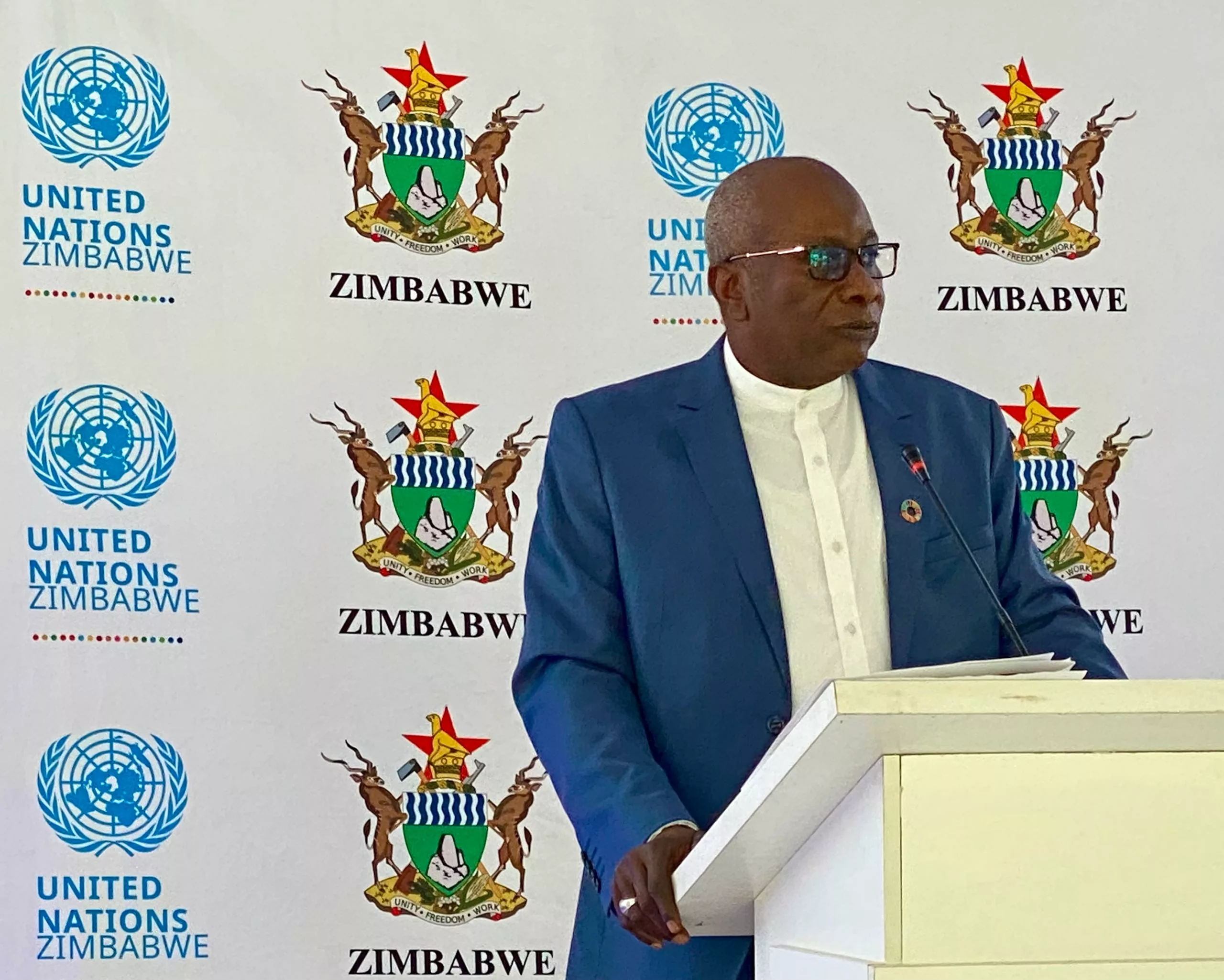|
Getting your Trinity Audio player ready...
|
The United Nations (UN) is celebrating progress and reaffirming its commitment to supporting Zimbabwe’s sustainable development agenda.
This was revealed by His Excellency Mr. Edward Kallon, UN Resident and Humanitarian Coordinator at the Mid-Term Review of the 2022-2026 Zimbabwe UN Sustainable Development Cooperation Framework on 26 September 2024 at the Golden Conifer in Harare.
In attendance were various top dignitaries. These included Dr. Martin Rushwaya, Chief Secretary to the President and Cabinet; Permanent Secretaries, officials from the Office of the President and Cabinet, and other senior government officials. Ambassadors, diplomatic corps members, and heads of international development cooperation also graced the occasion.
HE Kallon said the Cooperation Framework transcends being merely a blueprint for UN-funded activities in the country. It directs the planning and execution of UN development initiatives, supporting Zimbabwe’s pursuit of the 2030 Agenda for Sustainable Development and informing national policy as the country pursues its national development aspiration.
UN Compact/Value Proposition for Zimbabwe
It brings together the technical expertise, mandate, and comparative advantage of 25 UN entities, collaborating to deliver tangible development results in support of Zimbabwe’s National Development Strategy 1 (NDS1), Vision 2030 aspirations to become an upper-middle-income country, and the Sustainable Development Goals (SDGs).
Strategic Partnership Platform
It fosters inclusive dialogues and partnerships, adhering to the Common Minimum Standards of Multi-Stakeholder Partnerships. This platform leverages sustainable financing, encouraging investments towards realizing the 2030 Agenda. It supports channeling donor contributions and developing innovative financing strategies for collective development results that leave no one behind.
Challenges
Despite joint progress, Zimbabwe still confronts significant development challenges. The latest SDG index highlights the need for tailored solutions to address poverty, economic growth, inequality, climate change, disaster risk management, and institutional strengthening.
Investment Pathways for Accelerating SDGs
The Secretary-General has emphasized six key transitions as investment pathways for accelerating SDG progress: food systems, energy access, digital connectivity, education, jobs and social protection, and climate action.
HE Kallon reiterated the need to identify and develop scalable “bankable and market-ready” national projects. He highlighted the need to develop development financing consistent with the recent Economic and Social Council (ECOSOC)-endorsed country-level funding compact for the Cooperation Framework to promote synergy and support the speedy implementation of development programmes.
Equally important is the need to invest in building the capacity of public institutions and civil society organizations to enhance their role in executing the transition.
HE Kallon said the United Nations System in Zimbabwe remains committed to working with the Government of Zimbabwe and all stakeholders to facilitate these transitions in the country.
He added that the consensus reached on the Pact for Future Generations and the Digital Compact at the recent General Assembly presents opportunities to enhance multilateralism, international cooperation, and development financing that should be localized into our context.






